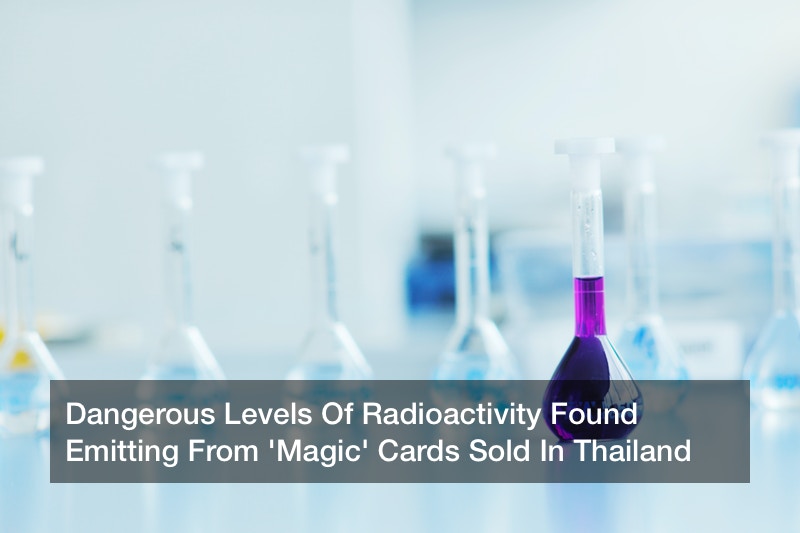As its name suggests, a water pipe is any pipe or tube designed to transport treated drinking water to consumers. Water tanks containing water for human consumption require protective coatings and linings, and the treatment of this water is significant; because there are so many dangerous things, from bacteria to sediment, found in untreated water, it can be harmful to human beings if consumed. One thing you generally don’t have to worry about is radioactivity or radioactive elements in your drinking water — that is, unless you dip the supposedly “magic” cards being sold in Thailand in your cup before drinking from it.
These cards are being sold in Thailand as a cure-all for diseases and ailments. Locals in the northeastern province of Khon Kaen are buying them for 1,500 baht ($48.84) and then proceeding to put the cards on different parts of their bodies and dip them in drinking water. According to the Office of Atoms for Peace (OAP), Thailand’s nuclear research department, some of the plastic cards were emitting radiation up to 350 times the safe limit for humans; follow-up X-rays revealed that the radioactive elements uranium and thorium were spread across their surface.
“We are currently trying to analyze the degree of radioactive contamination in the area,” said the OAP in a statement. “Dipping the cards into drinking water may contaminate it with carcinogenic particles, which increase the risk of cancer. As such, members of the public should refrain from using the cards, to prevent unnecessary exposure to radioactivity.”
Khao Sod, a Thai newspaper, reported that Professor Phutdhawong of Kasetsart University found the radioactive elements in a white powder compressed between the two sheets of plastic when he cut the card in half. While radioactive elements are used quite heavily in the pharmaceutical industry in the United States, it would never be in such an application.
For example, tritium, a radioactive isotope of the element hydrogen with a half-life of around 12.5 years, is relied upon for radiolabeling. However, these elements are only handled by professionals who are properly equipped. Compared to uranium — which boasts a half-life of 704 million years –, exposure could seriously hurt unprotected individuals. The radioactive element has been linked to cancer and, in the case of contaminated drinking water, kidney disease.
“Studies show that elevated levels of uranium from any source, including drinking water, can increase a person’s risk of kidney damage,” states the CDC website. “The kidney is the most sensitive organ for damage by uranium.”

